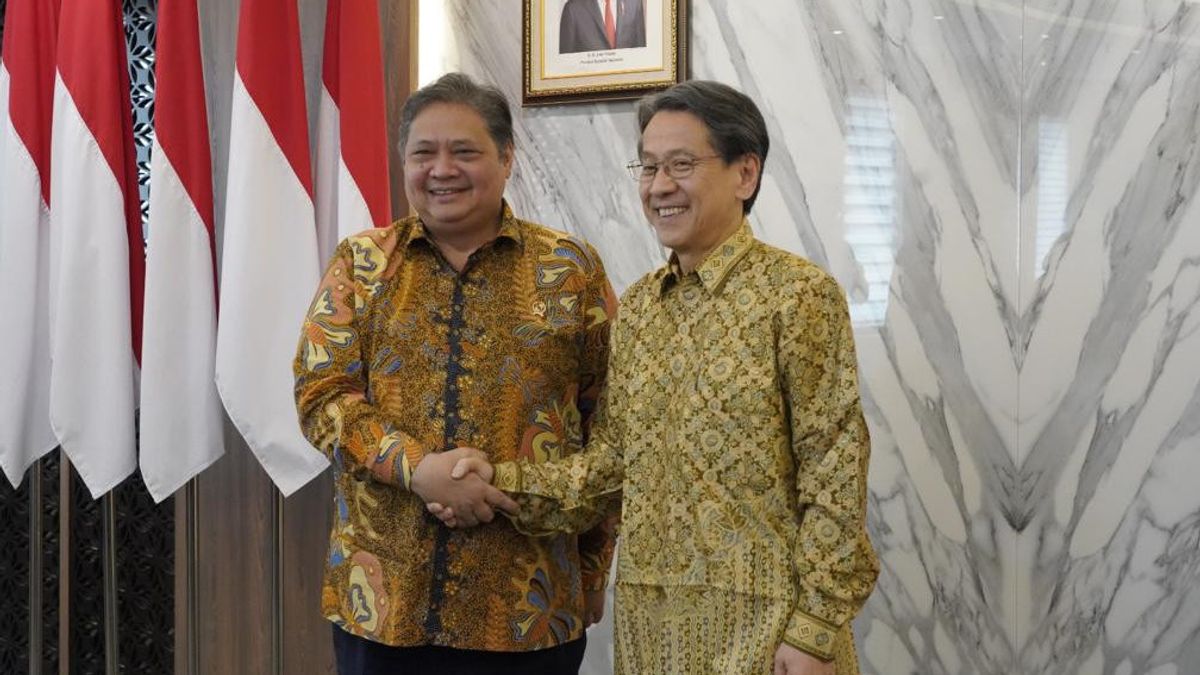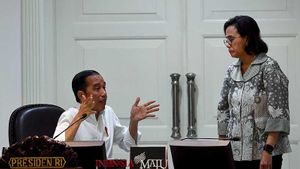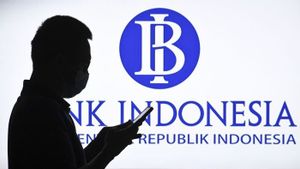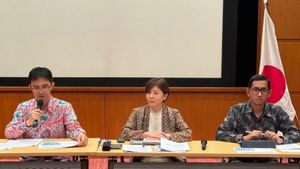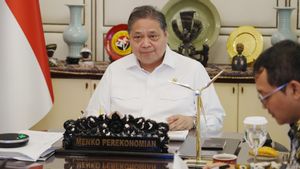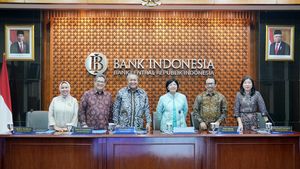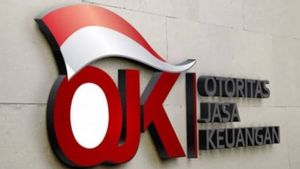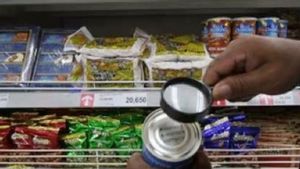JAKARTA - The Indonesian government through the Coordinating Minister for the Economy Airlangga Hartarto is known to have held a meeting with the Chairman of the Board of Directors of Japan Bank of International Cooperation (JBIC) and Special Advisors for the Japanese Cabinet Tadashi Maeda in Central Jakarta this week.
Dalam agenda tersebut kedua pihak sepakat untuk membentuk Satuan Tugas (Task Force) untuk pelaksanaan transisi energi dan infrastruktur, kerja sama Indonesia dan Jepang. Nantinya, satgas ini akan fokus pada proyek-proyek strategis di Kalimantan.
Coordinating Minister Airlangga said the agreed Task Force had a structure consisting of, first the Steering Committee consisting of policy makers at the ministerial level.
And secondly, the expert group (expert group) managed by senior officials of the Coordinating Ministry for Economic Affairs of Indonesia, the Ministry of Economy, Trade and Industry of Japan and JBIC. In addition, the Task Force also involves relevant ministry and corporate officials.
The meeting also discussed several potential sectors including the development of hydropower plants in Kayan, North Kalimantan to replace PLTU in Java, the development of efficient technology for Geothermal Power Plants, Carbon Capture, Utilization, and Storage (CCUS), blue urea and revitalization of peat areas with Japanese technology," he said.
Airlangga stated that he had assigned his ministry together with JBIC and METI to discuss technical details on the discussion of this issue.
Jepang through JBIC and METI provides funding for cooperation projects in this Task Force through the Green Innovation Fund of two trillion yen annually or around Rp207 trillion per year. This funding can help accelerate the energy transition in Indonesia," he said.
اقرأ أيضا:
In addition to observing the Task Force, Coordinating Minister Airlangga and Maeda also discussed Joint Crediting Mechanism (JCM) and other potential projects that will be implemented under the Asia Zero Emission Community (AZEC).
The JCM scheme is the most likely collaboration between Indonesia and Japan to mitigate carbon, where JCM has an important role in helping formulate national policies regarding the determination of carbon prices. Furthermore, the implementation of JCM also encourages the private sector to strengthen their confidence in participating in climate actions.
Meanwhile, Indonesia intends to launch a carbon exchange that allows various types of carbon to be traded. Through support from Japan related to JCM, Indonesia can implement 54 JCM projects and conduct at least 150 feasibility studies related to carbon emission reduction programs.
The Japanese government on this occasion also conveyed plans for a high-level AZEC meeting in conjunction with the 50th anniversary of the ASEAN-Japan in Tokyo in December 2023 and asked Indonesia to support this event.
Coordinating Minister Airlangga welcomed the proposal positively and would submit it to the relevant ministries/agencies.
The English, Chinese, Japanese, Arabic, and French versions are automatically generated by the AI. So there may still be inaccuracies in translating, please always see Indonesian as our main language. (system supported by DigitalSiber.id)
